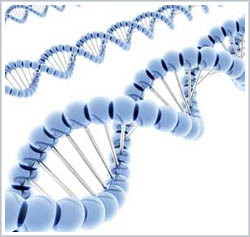Dramatic Increase In Genetic Info On Diseases
 Researchers have dramatically extended the amount of genetic data regarding complex human illnesses and their possible cure.
Researchers have dramatically extended the amount of genetic data regarding complex human illnesses and their possible cure.
A group of scentists from Children's Cancer Institute Australia for Medical Research (CCIA), University of New South Wales (UNSW) and Penn State University, rated the genomes of indigenous Africans and detected them to be amongst the planet's most genetically diverse natives.
The genomes of 4 Kalahari Desert Bushmen and a racial Bantu are the foremost to be sequenced from a native populace.
Over 1.3 million new genetic variations have been totted up to records of Human Genome Variation that thus far have been largely Eurocentric.
Published as the cover story in Nature, the finding has vital implications for medical study, offering up potential markers for the origins, cures and treatments for the most complicated illnesses, comprising cancer.
It also arouses questions regarding existing scientific assumptions about the genetic reasons of various diseases.
"The indigenous hunter-gatherer peoples of southern Africa are believed to be the oldest known lineage of modern humans," said study co-leader Vanessa Hayes from the CCIA and UNSW.
"On average, we found as many genetic differences between two Bushmen, than between a European and an Asian.
"This research now provides us with the tools to read the story of human evolution and specifically the story of disease evolution," Hayes said.
Importantly, the genomes are personalized, with all partakers identified and their medical histories registered.
Among the partakers was Nobel Peace Laureate Archbishop Desmond Tutu - a delegate of the Bantu community and a Global Elder.
The genome sequences will be released to the public and freely accessible online. (With Input from Agencies)